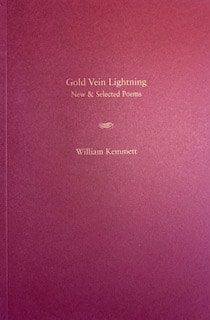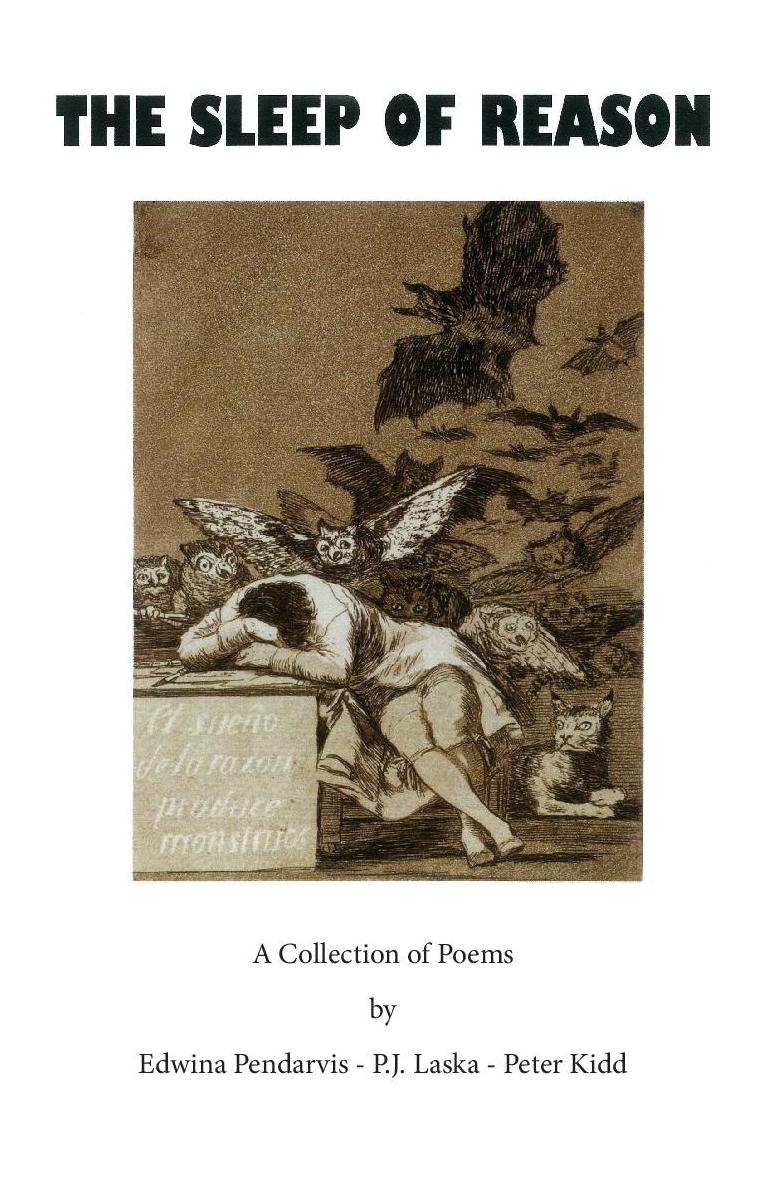
Review by Richard Martin
Gold Vein Lightning
New & Selected Poems
William Kemmett
Igneus Press (2020)
98 pages $15.00
Recently, I decided to shut off and block all sources of corporate media lashing my mind by way of 24-hour news cycles. The information and disinformation simply overloaded the circuits of my mind, body and soul. I began to feel encased in the lead of what was wrong with everything. It wasn’t I was in denial of disasters and the Armageddon of the next moment, and thus, should accept a lead suit without complaint. And I was fully aware of the ironic nightmare possessing America, i.e., everything from rigged political campaigns to the initiation of the Sixth Extinction were said to be hoaxes by the Master of the Hoax, the President of the United States. But like Joyce attempting to wake up from the nightmare of history, I wanted to awaken from the present instalment of it. I hoped for a phenomenal epiphany.
As fortune dictated, I began reading William Kemmett’s latest book, Gold Vein Lightning – New and Selected Poems (Igneus Press, 2020). Kemmett wasted no time in melting my lead attire with his electric poems. In the first and title poem of the collection, “Gold Vein Lightning,” he writes:
It’s a fraction
longer than a crack
across the sky –
a bolt split a rock
on the side of the
hill and turned
lead into gold.
There are things
you just know.
Kemmett is a reservoir of knowing things. Like an alchemist who roasted lead with gold to produce spirit and understood “unus mundus” to be the non-differentiated unity of being, Kemmett offers this to brew in Behold Every Creature:
The gift of day;
a field of crickets
orchestrates one string
of many notes.
Distance punches holes where
there are no holes and map
the sky for Lesser Beings
like myself who can’t sing
praises to the stars.
From the very first poems in the book, Kemmett’s verbal lightning struck deeply in me. Large sheaths of lead crashed to the floor. As I lugged them to the trash, they were heavy, bulky and awkward. A neighbor, blasting leaves into a purposeless dance with a leaf blower, calmed his machine to ask about the pile of lead in my arms, and had I lost a few pounds. Maybe, the Keto or South Beach Diet had paid the advertised results. I could only respond: “my nation is hungry/for green emeralds and mystical/sapphires, Li Po’s river/of stars.” (“The People’s Poem,” p.17). He shook his head and said: “Now ain’t that the truth.”
Lightning across the sky assumes many shapes and forms, and Kemmett’s poems were no different in terms of presentation on the page. The august beauty of his language and choice of words glowed in appropriate forms to their phrasing. As my body continued to exfoliate my leaden condition, I enjoyed his poems centered on family and humorous insights gleaned from imagination and experience or encounters with others: a lonely woman with a pet spider buys a deluxe model of the bible in the “The Bible Salesman”; a bather’s hasty escort from an ocean beach after offering a young sun worshipper a sardine: “Sardines! I shout back/through a hail of rocks and beer bottles.” (“Sardines,” p.31); and a trip to Home Depot in “Imagining the Worse”:
So, it’s come to this –
not until the light
through the garden section
at Home Depot do I notice
I’m wearing mismatched sandals.
Am I fugitive
from one of the nursing homes
in Florida?
Throughout the collection, I was engrossed by the way Kemmett’s poems were stewards of the earth with their close observation, grace, magic, mysticism and wisdom as in “Citrix X Paradisi”:
I’m in a state of grace:
the lime tree I planted has
decided to root and defy
the citrus canker that preys
on bad grafting.
The gold vein lightning of William Kemmett’s poetry demolished my encasement in lead and suspended the “canker” of the present moment in history. This is an outstanding achievement, and especially relevant for anyone who happens to be a man or woman in a grey, lead suit within a grey, leaden culture. Kemmett sings through his poetry the world is immediately and always before our senses and intellect. It is there as pulse, energy and uncompromising openness. It is forever new and mysterious and cannot be reduced to sound bits and pointless partisanship. The transcendent world – in being there – inhibits us, waiting for us to witness it. Gold Vein Lighting – New and Selected Poems offers a way.
Please note: I would be remiss in not applauding the clean and refreshing design of Igneus Press books under the guidance of publisher, Peter Kidd, a lightning force in his own right. Graphic Details of Portsmouth, New Hampshire and S. Stephanie designed Gold Vein Lighting – New and Selected Poems for Igneus Press. Their design reflects the authenticity of William Kemmett’s poetry. The maroon cover with gold lettering is elegant and foreshadows the lightning strikes to come.
Richard Martin writes poetry and fiction. His forthcoming book, Ceremony of the Unknown (Spuyten Duyvil, 2020) will be available in the spring. His latest chapbook from Igneus Press is Cosmic Sandbox.

